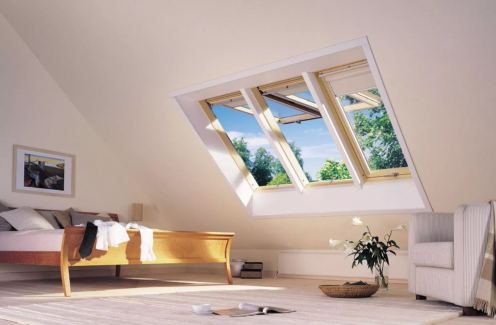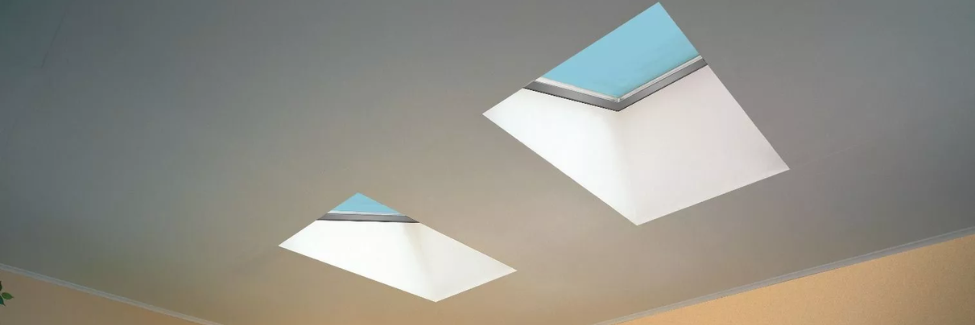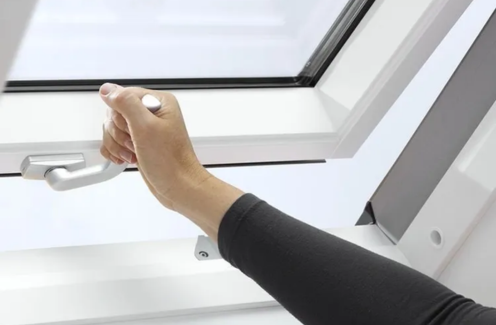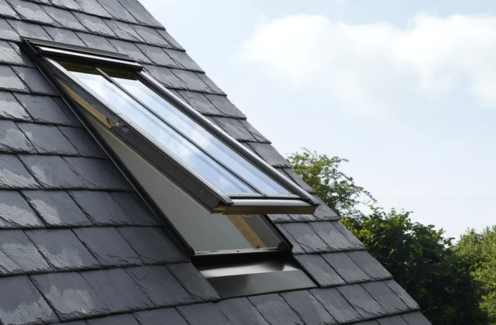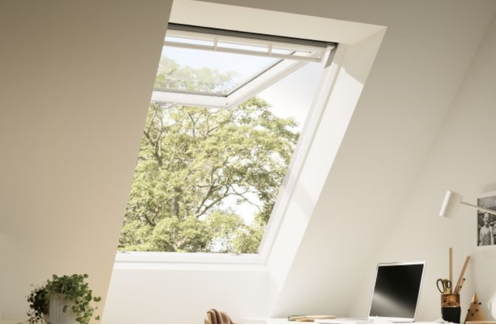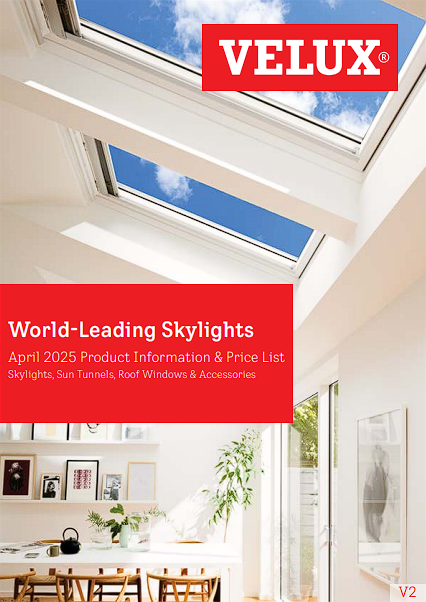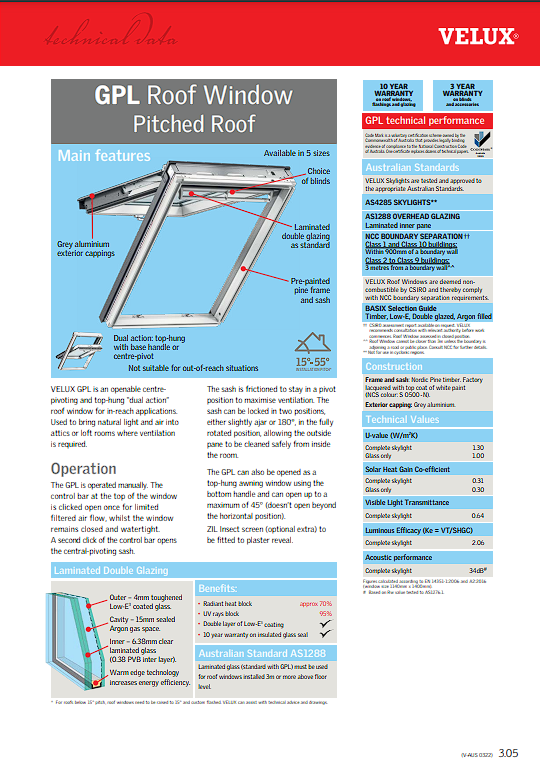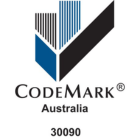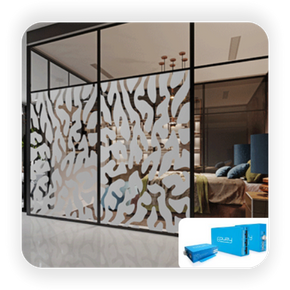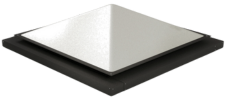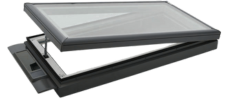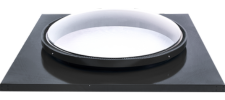SKYLIGHTS
The Velux GPL is a Dual action roof window. The GPL is developed for use in attics with shallower pitched roofs to maximise roof top views. For within-reach situations only. The Velux GPL is to be used on roof pitches 15° - 55°.
- Opens in two ways: the bottom handle allows for top-hung opening, while a short pull on the top control bar operates the filtered vent flap for background ventilation even while the window is shut. A longer pull allows the sash to rotate180° for ease of cleaning the outer pane from inside the room.
- Quality lacquered pine sash & frame.
- Complete with flashings for corrugated & tile roof. Custom flashings available from Skyspan.
- Available in 5 sizes.
- Laminated double glazing as standard.
- Insect screen available as extra.
Opening Restrictions
- BCA 2013 Vol 1 & 2 regulations (Prevention of Fall from Windows – Balustrades & Barriers): contact VELUX for information relating to restrictor devices for within-reach opening roof windows.
- * Not recommended for roof pitch below 15°.
- †U-value (W/m²k) and SHGC calculated according to EN 14351-1:2006 + A1:2010 (windows size 1140mm x 1400mm).
- ^ Bushfire testing applicable to GGL in roof pitch 18°-75° and GPL 18°-55°. Custom-made flashing required. Roof Window tested in closed position, additional mesh protection may be required for opening apertures (consult local council).
- ⱡ Except Cyclonic.
- †† Roof Window in closed position.
| U-Value † | Solar Heat Gain Co-efficient † | Heat Block^ | wers max 5 stars (summer rating) | Australian standards |
| Skylight 1.30 Glass only 1.00 | Skylight 0.31 Glass only 0.30 | Approx 70% | ★★★★★ | AS4285‡, AS1288 |
NB: For roofs below 15° pitch, roof windows need to be raised to 15° and custom flashed. VELUX can assist with technical advice and drawings (build-up not recommended in Bushfire areas). †U-value (W/m²K) and SHGC calculated according to EN 14351-1:2006 + A2:2016 (window size 1140mm x 1400mm). ‡Except Cyclonic
BCA 2013 Vol 1 & 2 regulations (Prevention of Falls from Windows - Balustrades & Barriers): contact VELUX for information relating to restrictor devices for within-reach opening skylights.
ASSEMBLY & PACKING TIME
1 - 5 Working Days
Certification
We are currently updating all our technical drawings, please contact [email protected] for the most up to date drawings for your desired product(s).
Wood maintenance
Although most of our products are now pre-painted, some still maintain a natural wood finish. The timber has received basic treatment and finished coating at the factory and can be cleaned with ordinary household cleaners. It must receive further treatment at least every four years and whenever required. Windows exposed to strong heat, strong sunlight and/or an especially high level of humidity (e.g. in a kitchen or bathroom) must however receive treatment at least every two years.
Surface maintenance: Remove surface treatment (varnish or paint). Ensure surface is clean and dry and apply primer to the timber. When dry, apply a coat of water-based acrylic varnish/paint (always follow the manufacturer's directions). Apply the same method to the affected areas if the varnish/paint is damaged.
When you treat the wood, it is important to cover the gaskets to prevent varnish/paint rubbing off on the gaskets, as this will make the gaskets stiff/hard and spoil their effect.
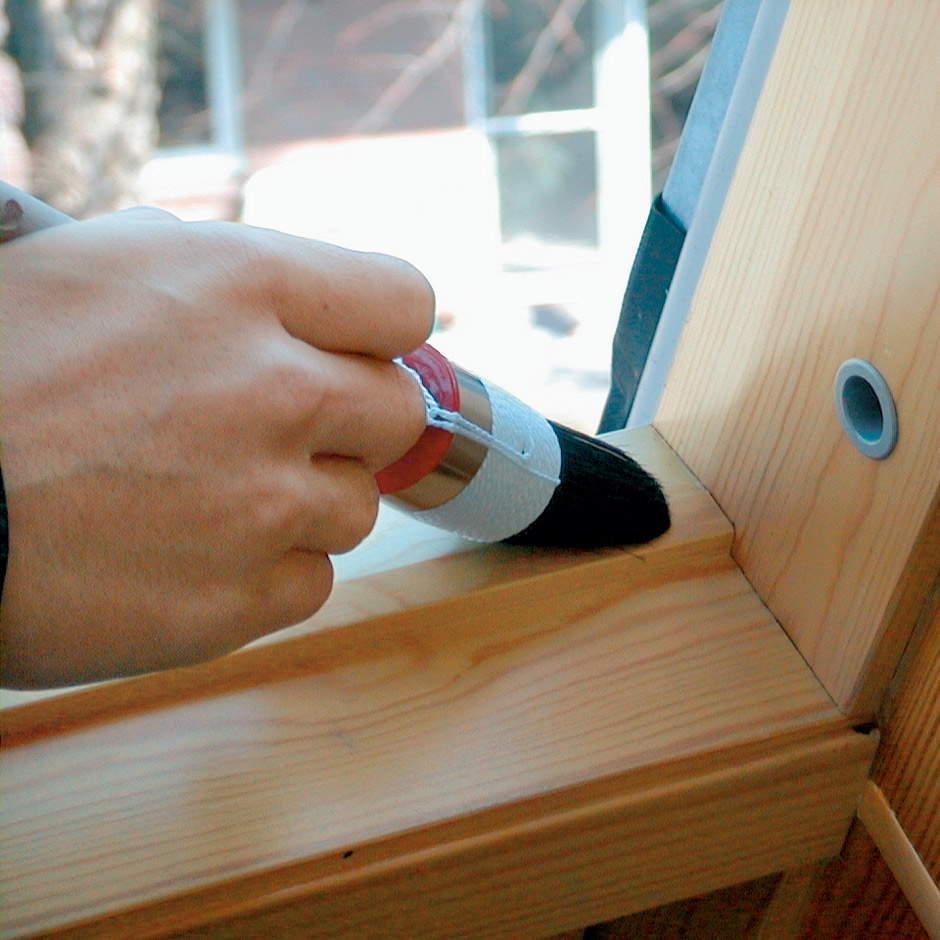

Cleaning the pane
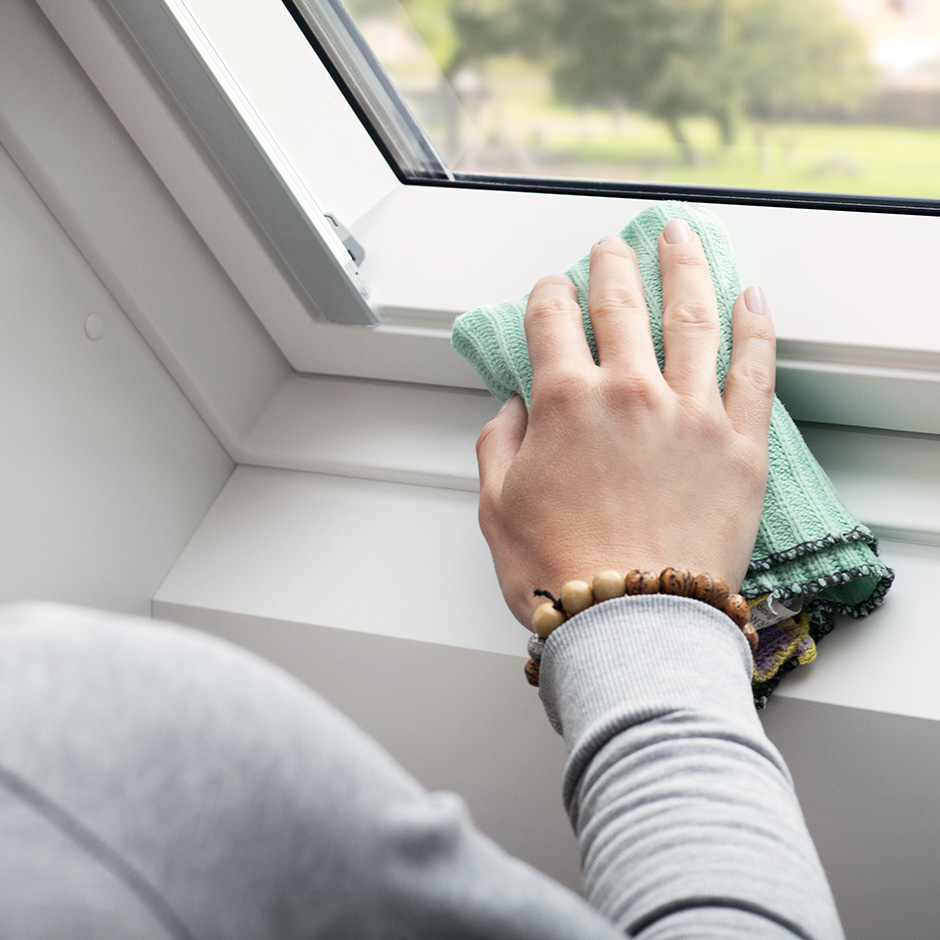

Clean the pane with a soft, clean, lint-free cloth/chamois leather/nonabrasive sponge or a clean, non-metal window squeegee. Clean water will normally be sufficient for cleaning the pane. Ordinary, non-abrasive household cleaners can also be used. Soft water is best for cleaning panes. Therefore, in hard-water areas add a small amount of detergent to soften the water or wipe off all excess water after cleaning.
- Avoid contact from silicone with the pane
- Do not use any cleaning products containing abrasive particles
- Do not use chemical products for cleaning the pane
- Avoid contact with the pane from all sharp or abrasive objects including jewellery
- Never attempt to clean off dirt on the pane without first applying water
- If any works are taking place in the vicinity of the pane, protect the pane with a clean plastic sheet to prevent any splashes or staining from aggressive and abrasive compounds
Cleaning the flashing
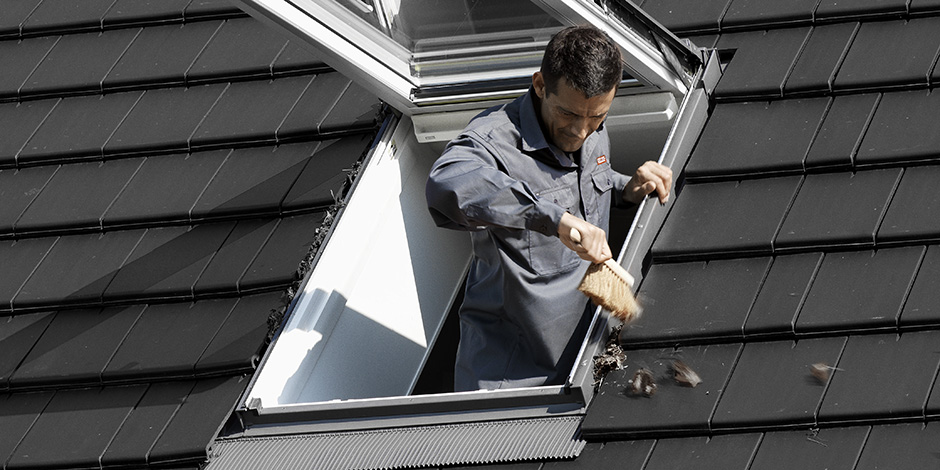

Leaves and other debris should be re moved from the flashing around the window once per year to allow rain water to flow freely.
Condensation
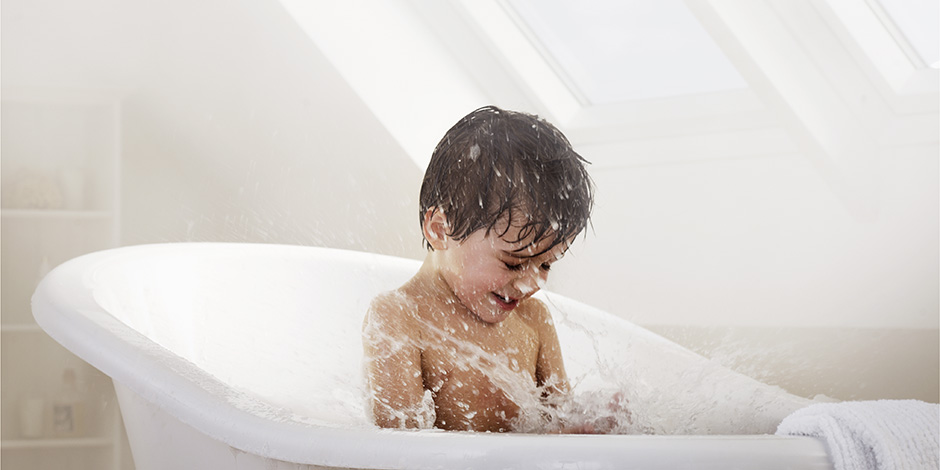

When condensation forms on the glazing of your windows, you should take it as a warning sign that you should ventilate more often. Regular ventilation is the most efficient way of preventing condensation water from forming on your window glazing.
Limit the amount of humidity:
- If possible, do not dry your laundry inside the house.
- Close the doors of kitchens and bathrooms.
- Ventilate regularly for five minutes at least three or four times a day
- If possible, maintain a constant room temperature of at least 68°F.
Snow and ice
In areas with prolonged cold periods with heavy snowfall, considerable amounts of snow and ice may accumulate on the roof and a VELUX roof window could become covered with snow and ice for long periods.
When the temperature rises, the window will often be one of the first places where the snow and ice starts melting.
It is important to make sure that water can always drain off from the roof and surrounding gutters.
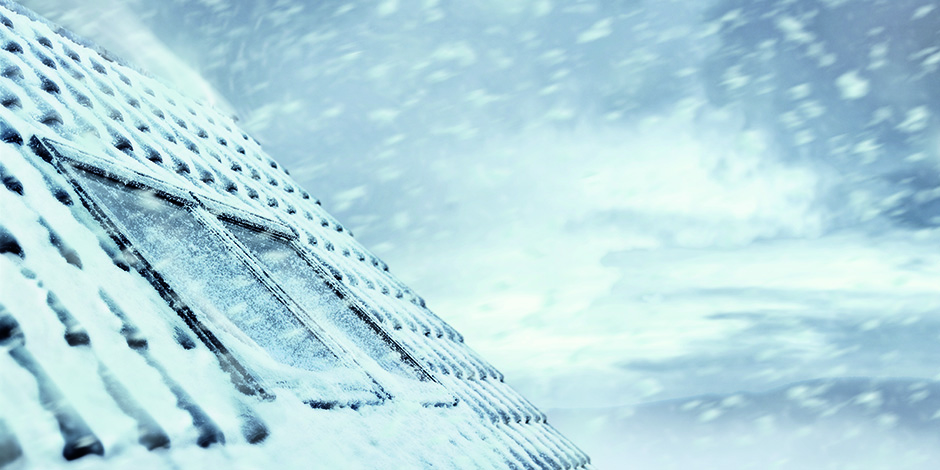

Specifications
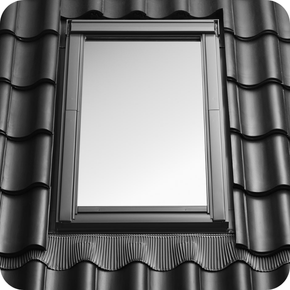
External protection
Aluminium cappings and flashings for corrugated iron or tile roofs. VELUX flashing kit must be purchased for complete capping set.
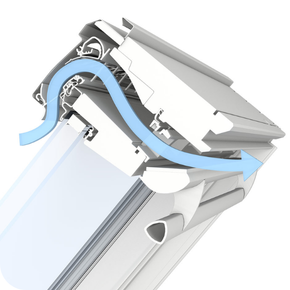
Ventilation flap
Our unique ventilation flap keeps dust and insects out while letting fresh air in.
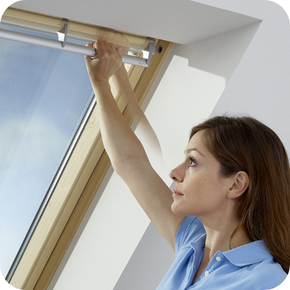
Top handle bar
For within reach the top handle bar is designed for maximum comfort.
